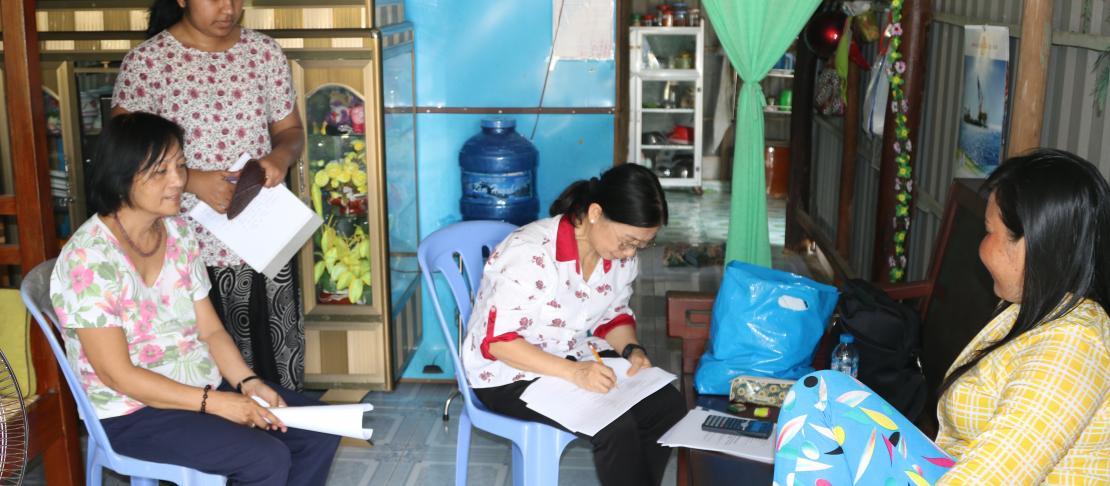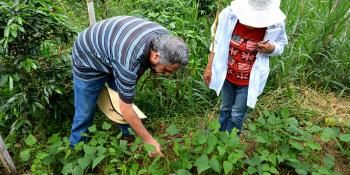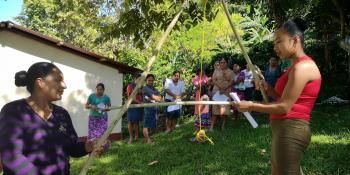Inclusion: A strategy for addressing climate change in Vietnam

Climate change impacts men and women farmers differently, thus, need-based interventions should be determined for optimum benefit.
Farmers from different countries have been observing unusual increases in temperature and reduced rainfall, and the farmers from the Tra Hat Climate-Smart Village (CSV) in southern Vietnam are no exception.
These changes in the climate often have negative impacts on farming livelihoods, especially livestock and rice production. Crop losses due to climate change, coupled with non-climatic factors such as increased costs of farm inputs, mean low or even negative returns for the farmers.
Despite the recognized importance of strategies to increase farmers' resilience, a study conducted by Srijita Dasgupta of the University of Copenhagen found that Tra Hat did not have any long-term adaptation strategies.
This implies that village farmers are more exposed to risks with the absence of clear-cut measures to increase their adaptive capacities both to climatic and non-climatic factors. Lack of access to information on climate-smart agriculture, lack of access to markets, and the exploitation of middlemen likewise hinder the farmers from fully adapting to climate change.
Analysing the livelihood activities of male- and female-headed farming households through gender lens, the study found that female-headed households had slightly more diversified livelihood activities, with at least one off-farm income source to augment their on-farm activities, compared to male-headed households. However, female-headed households remain vulnerable as they faced more constraints, such as no land entitlement, lack of access to formal credit facilities, lack of access to training programs and heavier workloads.
Strategies for communities to address climate change
An integrated strategy addresses the basic need of farming households for food security and improves their adaptive capacity and the mitigation potential of their farming systems. Communication tools, especially initiatives involving information and communication technology and early warning systems, would help farmers identify measures to help them cope with changes and enable them to make informed decisions. Mobile phones and the internet could be maximized to bring the needed information to farmers. Aside from checking the weather and climate advisories, farmers could also use these media to check the prices of their commodities and link them to markets.
To strengthen the rice value chain, the government and other local associations should nip in the bud exploitative middlemen. Strong cooperatives and organized farmers groups could help farmers penetrate the 'big' markets that could offer better income.
In particular, female-headed households could be helped by providing needs-based training programs, including those that are targeted especially to women. As women farmers usually focus on livestock production as additional sources of household income, training sessions on this would be helpful.
“It is also important that men and women are trained in ways that they are able to understand the content and later apply the lessons learned on the field,” stated Dasgupta. In addition, training the women on better household budget management could help reduce risks and vulnerabilities of farming households.
Encouraging female heads of households to join women’s unions would be an avenue to provide them with the knowledge and skills on different income generation activities. Processing produce from their farms into handicrafts of food items for sale could further augment their incomes. Aside from providing information, cooperatives would help the women reach the markets better.
Households could also contribute towards a community climate fund, which can provide additional financial support, especially during severe or unforeseen weather events.
All these recommendations hope to improve the livelihoods of farming households in Tra Hat, as well as in other areas. One must keep in mind that different groups have different needs, thus a targeted approach would be more appropriate.
Read more:
- Unleashing the potential of Vietnamese women farmers as change agents
- From wives to managers: Tackling climate change with women farmers
- What does it take to apply a gender-responsive approach to climate-smart agriculture?
Amy Cruz is the junior communications specialist for the World Agroforestry Centre Philippines. She is also a communication consultant with the CCAFS SEA program.



